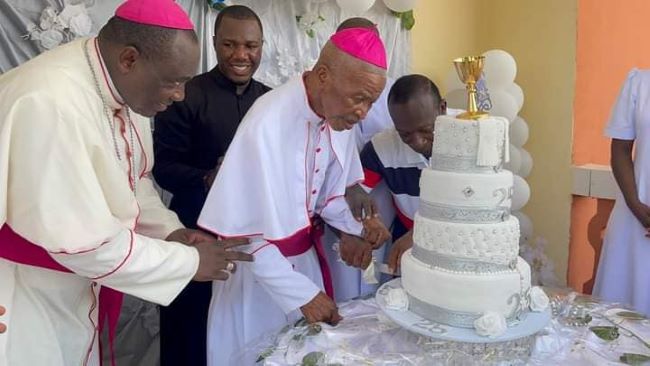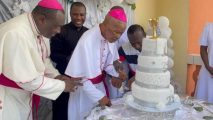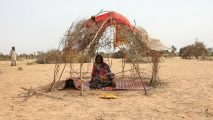Categories
Archives
- April 2024
- March 2024
- February 2024
- January 2024
- December 2023
- November 2023
- October 2023
- September 2023
- August 2023
- July 2023
- June 2023
- May 2023
- April 2023
- March 2023
- February 2023
- January 2023
- December 2022
- November 2022
- October 2022
- September 2022
- August 2022
- July 2022
- June 2022
- May 2022
- April 2022
- March 2022
- February 2022
- January 2022
- December 2021
- November 2021
- October 2021
- September 2021
- August 2021
- July 2021
- June 2021
- May 2021
- April 2021
- March 2021
- February 2021
- January 2021
- December 2020
- November 2020
- October 2020
- September 2020
- August 2020
- July 2020
- June 2020
- May 2020
- April 2020
- March 2020
- February 2020
- January 2020
- December 2019
- November 2019
- October 2019
- September 2019
- August 2019
- July 2019
- June 2019
- May 2019
- April 2019
- March 2019
- February 2019
- January 2019
- December 2018
- November 2018
- October 2018
- September 2018
- August 2018
- July 2018
- June 2018
- May 2018
- April 2018
- March 2018
- February 2018
- January 2018
- December 2017
- November 2017
- October 2017
- September 2017
- August 2017
- July 2017
- June 2017
- May 2017
- April 2017
- March 2017
- February 2017
- January 2017
- December 2016
- November 2016
- October 2016
- September 2016
- August 2016
- July 2016
- June 2016
Featured
 Bishop Francis T. Lysinge @ 25!
Bishop Francis T. Lysinge @ 25!  Understanding the Biya Francophone regime’s support for the Israeli genocide in Gaza
Understanding the Biya Francophone regime’s support for the Israeli genocide in Gaza  Poverty under Biya: Cameroonians embrace Chinese language for brighter futures
Poverty under Biya: Cameroonians embrace Chinese language for brighter futures  Cameroon is broken: Who can fix it?
Cameroon is broken: Who can fix it?  Ethiopia: U.S Senator Cardin Statement on the Killing of Bate Urgessa
Ethiopia: U.S Senator Cardin Statement on the Killing of Bate Urgessa
Most Commented Posts
 4 Anglophone detainees killed in Yaounde
4 Anglophone detainees killed in Yaounde
19 comments Chantal Biya says she will return to Cameroon if General Ivo Yenwo, Martin Belinga Eboutou and Ferdinand Ngoh Ngoh are sacked
Chantal Biya says she will return to Cameroon if General Ivo Yenwo, Martin Belinga Eboutou and Ferdinand Ngoh Ngoh are sacked
13 comments Anglophone Nationalism: Barrister Eyambe says “hidden plans are at work”
Anglophone Nationalism: Barrister Eyambe says “hidden plans are at work”
12 comments The Anglophone Problem – When Facts don’t Lie
The Anglophone Problem – When Facts don’t Lie
12 comments Largest wave of arrest by BIR in Bamenda
Largest wave of arrest by BIR in Bamenda
10 comments
Latest Tweets
Featured
-

Bishop Francis T. Lysinge @ 25!
-

10 Million Cameroonians lived on less than $1.80 per day
-

Football: Xavi to remain as Barcelona coach
-

Biya regime delays bond sale amid regional market strain
-

Historic agreement between Nigeria and Cameroon to tackle wildlife crime
-

Southern Cameroons refugees in Nigeria receive farm seedlings
-

Douala: Investment Forum wraps up with honors for investment champions
© Cameroon Concord News 2024
3, October 2019
Southern Cameroons Crisis: Ongoing armed conflict despite dialogue 0
On Monday, 30 September, the government of Cameroon launched a national dialogue aimed at ending ongoing armed conflict in the Anglophone north-west and south-west regions. Prime Minister Joseph Dion Ngute is leading the talks in the capital, Yaoundé. During the days leading up to the dialogue, some armed separatist groups rejected the process and intensified their attacks in the disputed Anglophone regions, killing a number of people and damaging electrical infrastructure.
President Paul Biya announced the national dialogue on 10 September amidst growing pressure from the international community. Following her visit to Cameroon in May, the UN High Commissioner for Human Rights, Michelle Bachelet, urged “all sides, including the Government, to make a strenuous effort to end the fighting and begin peace talks.” In June the government of Switzerland also offered to mediate the conflict.
The government of Cameroon has consistently denied the gravity of the crisis and President Biya has dismissed the grievances of Anglophone protesters. Meanwhile, a number of separatist leaders have refused to attend the dialogue, emphasizing that they would only work with those willing to formally recognize the independence of the Anglophone regions.
The launch of the national dialogue coincides with the second anniversary of the separatists’ declaration of an independent state of “Ambazonia” on 1 October 2017. Since then there has been mounting evidence of the security forces perpetrating widespread extrajudicial killings, as well as of armed separatists committing numerous human rights abuses and violations. At least 650 civilians, 235 members of the security forces, and an estimated 1,000 alleged separatists have reportedly been killed as a result of ongoing conflict. More than 530,000 people have been displaced and more than 170 Anglophone villages have been burned or destroyed by government forces.
All parties in Cameroon should work towards a negotiated political solution to the armed conflict in the north-west and south-west regions. The government of Cameroon should release political prisoners, ensure all its military operations are undertaken in strict compliance with international law, and initiate credible and inclusive peace talks, without preconditions. Armed separatists should immediately call a ceasefire and negotiate with the government. The international community, including the African Union and Economic Community of Central African States, must help mediate an end to the conflict and ensure accountability for potential mass atrocity crimes.
Source: Reliefweb